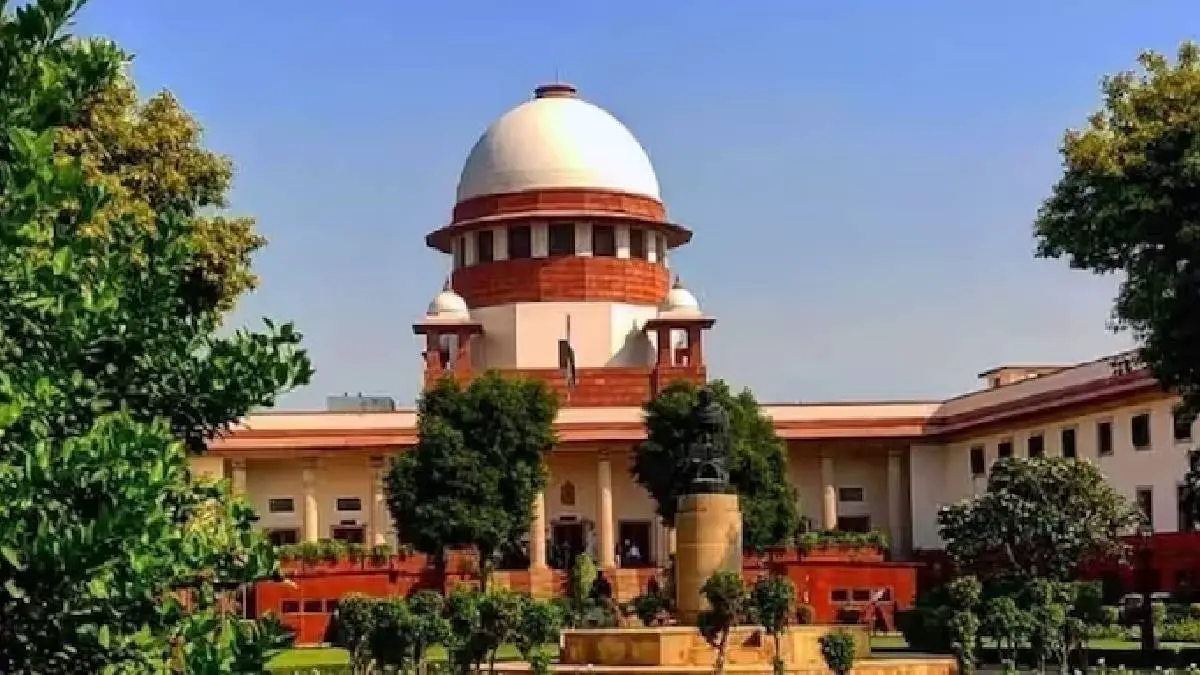The Supreme Court on Wednesday postponed the hearing on the petitions against the appointments of the Chief Election Commissioner (CEC) and Election Commissioners (EC) under the 2023 Act. A bench of Justices Suryakant and N. Kotishwar Singh indicated that due to lack of time, the case would be listed after the Holi festival holiday. However, no date was fixed for hearing the case.
Lawyer Prashant Bhushan, appearing for the petitioner NGO Association for Democratic Reforms, said that this is an important issue that needs to be considered immediately. He said that the case includes a small legal question – whether the decision of the Constitution Bench of 2023 should be followed through a panel involved in the Prime Minister, Leader of Opposition and Chief Justice of India for the appointment of CEC and EC or The 2023 law should be followed, which keeps the CJI out of the panel.
At around 3 pm, Justice Suryakant told Bhushan that he would sit in a special back and many cases are listed in the court before Holi holiday. Bhushan requested the case to list the case any day in the coming week and assured that the petitioners would not take more than an hour to present their arguments.
Lawyer Varun Thakur, who appeared on behalf of the petitioner Jaya Thakur, also mentioned the immediate hearing of the case and said that it is “very important for the existence of democracy”. Justice Suryakant said that all cases are equally important for the court and no case is better than others. Earlier, Solicitor General Tushar Mehta, appearing for the Center, expressed his inability to address the court on the issue, saying that he was appearing before the Constitution Bench headed by Chief Justice Sanjeev Khanna on the issue of mediation.
On 18 February, the apex court stated that it would “on priority” on petitions against CEC and EC appointments under 2023 law. Bhushan said that the government is making fun of democracy “by appointing new CEC and EC under the 2023 law. On 17 February, the government appointed EC Gyanesh Kumar as the next CEC.
Kumar is the first CEC to be appointed under the new law and his term will run till January 26, 2029, which is a few days before the EC announced the next Lok Sabha election schedule. Vivek Joshi, an IAS officer of the 1989 batch Haryana cadre, was appointed as the Election Commissioner. Born on May 21, 1966, Joshi (58) will work in the Election Commission by 2031.
Now hearing will be held on February 19
According to the law, a CEC or EC retires at the age of 65 or can last for six years in the Election Commission. On February 12, the apex court fixed the date of February 19 for hearing the petitions against the appointment of the Chief Election Commissioner and Election Commissioner under the 2023 law and said that if anything happened in the meantime, it would have to bear the consequences.
It said that this issue will be decided on the basis of merit and finally. Citing the 2023 decision, Bhushan said that it was said that it was to be selected by an independent committee of the Prime Minister, Leader of Opposition and Chief Justice of India for the appointment of Election Commissioners. On March 15, 2024, the apex court refused to ban the appointments of new Election Commissioners under the 2023 law, in which the CJI was excluded from the selection committee and deferred hearing on a batch of petitions against the appointments.
What did the court say
The apex court told the petitioners that in the March 2, 2023 judgment, the Prime Minister, Leader of Opposition and a three -member committee of CJI were directed to work till the Parliament was enacted by Parliament. The decision of the Supreme Court states that the appointment of Election Commissioners and Chief Election Commissioners in the hands of the executive will be harmful to the health of the country’s democracy and free and fair elections.
The NGO challenged the boycott of the CJI and said that the Election Commission should be kept away from “political” and “executive intervention” to maintain healthy democracy. The ADR petition alleged that the Center dismissed the decision without removing the basis and structure of the selection committee under the new law, which is equal to the excessive intervention of the executive in the appointments and is harmful to the freedom of the Election Commission.
Former IAS officers Gyanesh Kumar and Sukhbir Sandhu were recommended to appoint as Election Commissioner in 2024 by the selection panel headed by Prime Minister Narendra Modi under the new law.
